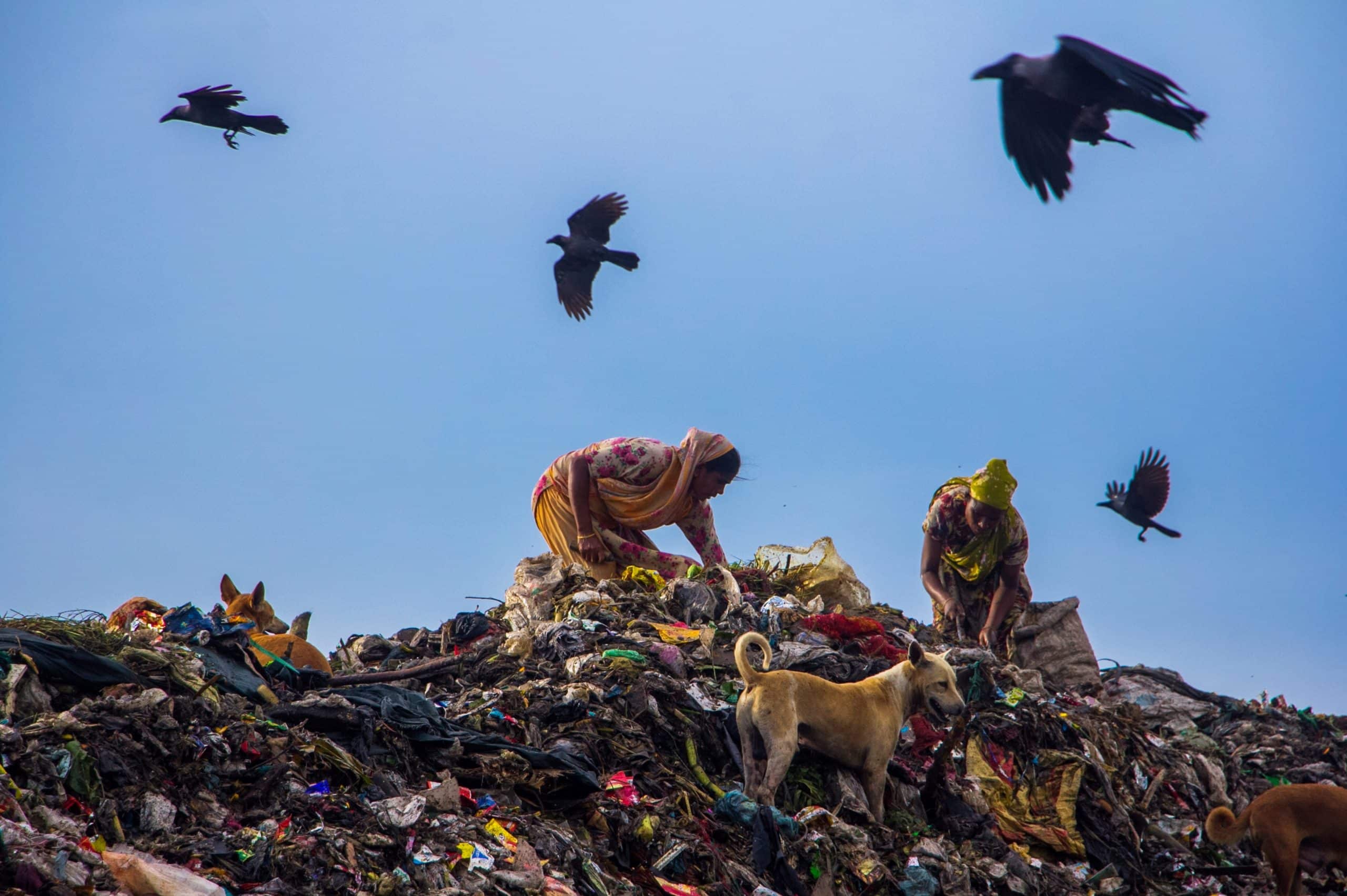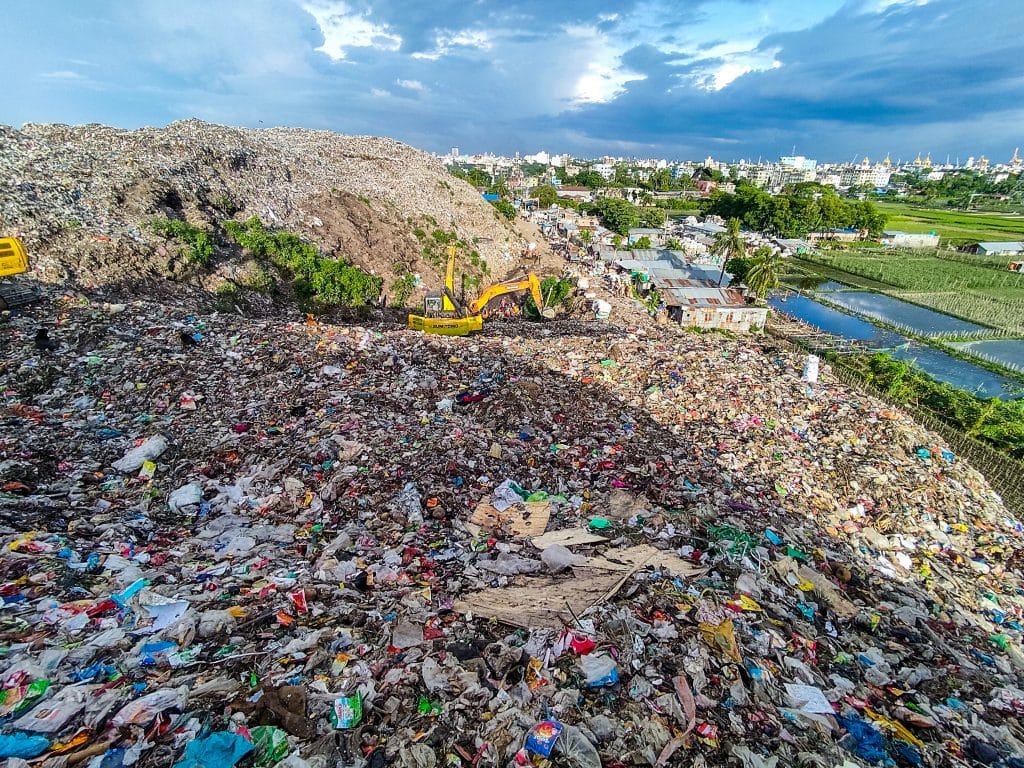Every year, an estimated 11.2 billion tonnes of solid waste is collected worldwide. This alone contributes to about 5% of global GHG emissions. In this article, you will learn about what landfills are, how they have become critical issues in the fight against climate change, and efficient ways to minimise landfill waste.
—
Why Are Landfills A Problem?
Landfills are a system of trash and garbage disposal in which the waste is buried between layers of earth. They are built in a way that makes it possible for them to hold a wide range of waste, from manufacturing and construction waste to agriculture waste.
Waste that ends up in landfills comes from a myriad of different sources, including households, workplaces, factories, and hospitals. The demand for the production of goods is directly linked to population growth and urbanisation, which in turn increases the need for larger landfills to hold the expanding amount of waste.
What Happens When Landfills Are Full?
Around 11.2 billion tonnes of municipal solid waste are expected to be produced annually worldwide, according to the United Nations Environmental Programme (UNEP). That much waste would be enough to fill more than 800,000 Olympic-sized swimming pools. Countries like the United States are now forced to find alternate methods of disposing of their waste because China, Thailand, Vietnam, and Malaysia – which used to be the dumping ground for foreign nations’ trash – have all enacted bans on the import of waste from other countries.
A sizeable fraction of that waste is currently burned. In the process, toxic gases, including nitrogen oxides and sulphur dioxides, are released into the atmosphere. The amount of particulate matter in the atmosphere is also increased as a result of this practice. Besides contributing significantly to emissions and thus global warming, these compounds also have the potential to be seriously harmful to the public’s health.

How Can We Reduce Landfill Waste?
- Instead of purchasing beverages in single-use plastic bottles, choose reusable containers.
- Cut back on purchases: the fewer products you buy, the less waste you produce.
- Reusing things reduces waste and offers the chance to make financial savings by saving money on supplies and conserving natural resources which can later be used.
- Invest in products that use recycled materials to contribute to environmental improvement.
- Greener, more natural cleaning agents like vinegar and baking soda reduce waste produced by the countless cleaning product containers and are also better for the environment.
- Recycle. By adopting recycling processes the wastes can be minimised, as recycling is connected with pre-loved items and gives them second life.
- Compost. Organic wastes, like yard and food waste, make up to 25 to 50% of overall waste. You may not be able to compost all of it but a significant amount can help you with the landfill’s waste.
- Discuss the advantages of lowering the amount of solid waste created with other residents of your neighbourhood and learn more about the garbage and recycling policies that your community has in place.
- Your behaviour ought to be an example for others. People may want to duplicate your accomplishments if they see that you are making a difference.
Conclusion
To solve the landfill’s problem, Recycle Technologies Inc. provides the best services by having a mail-in program where you can recycle your waste with complete confidentiality. Recycling is one way to lessen the quantity of waste dumped in landfills, but it is not the only approach that can be used in this regard.
You can also reuse the product you already have like shopping bags, scrap paper, etc. Each scrap paper you produce should also be saved, so you can later compile it into a new notepad. Both printing on both sides of the page and printing on both sides of the sheet are additional options. Try to purchase things that have already been recycled, and compost any leftover food or yard waste that you may have.
Featured image: EO Photographer Rayham Ahmed.
If you want to learn more about ways to reduce your waste, check out this article next: Solution for Plastic Pollution: 6 Policies and Innovations Tackling Plastics


















